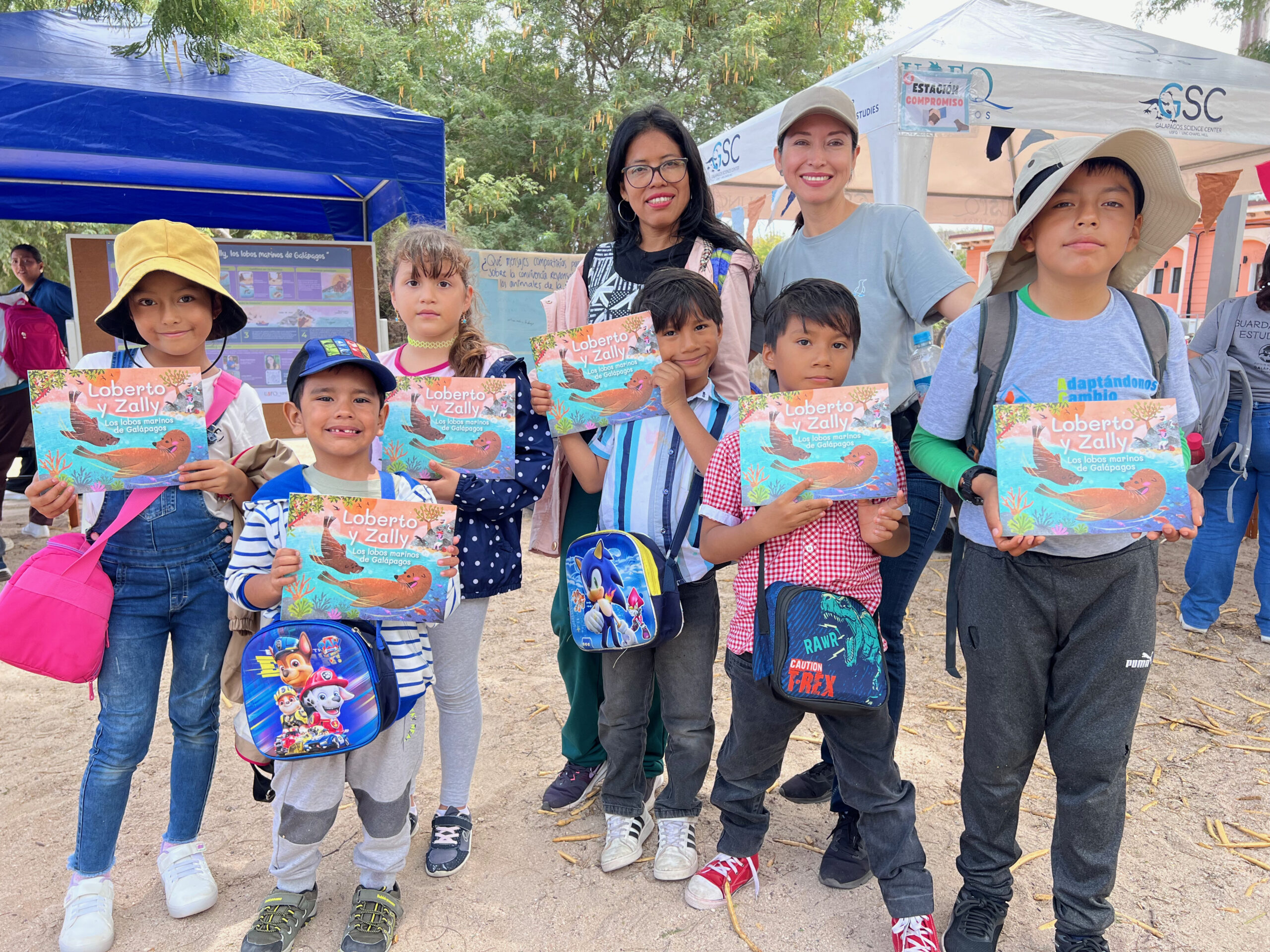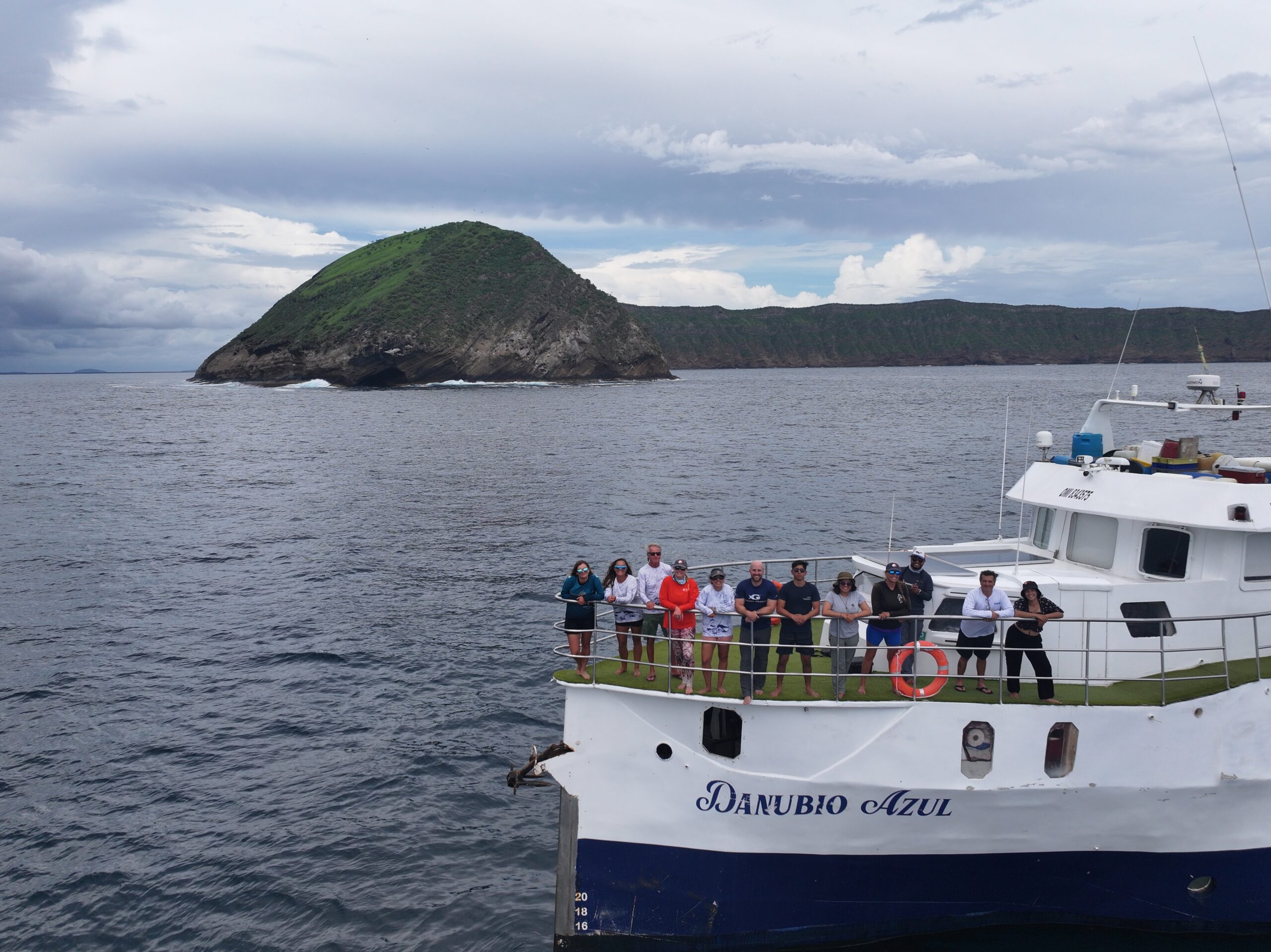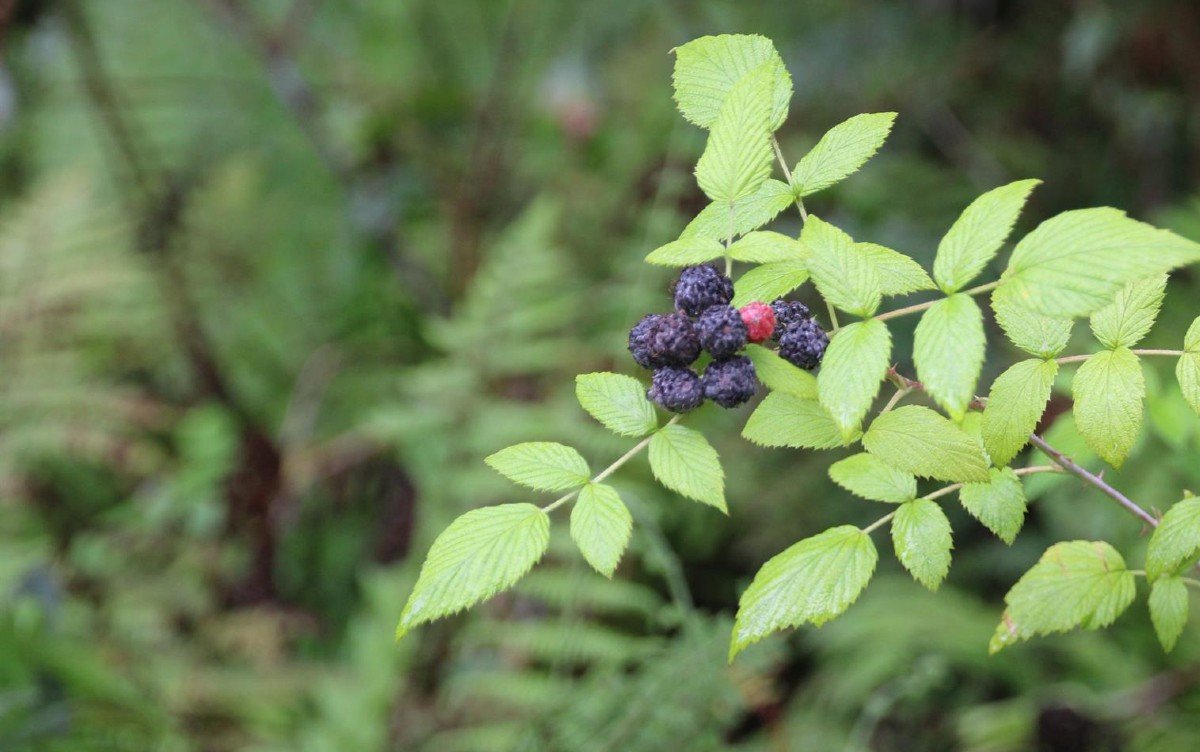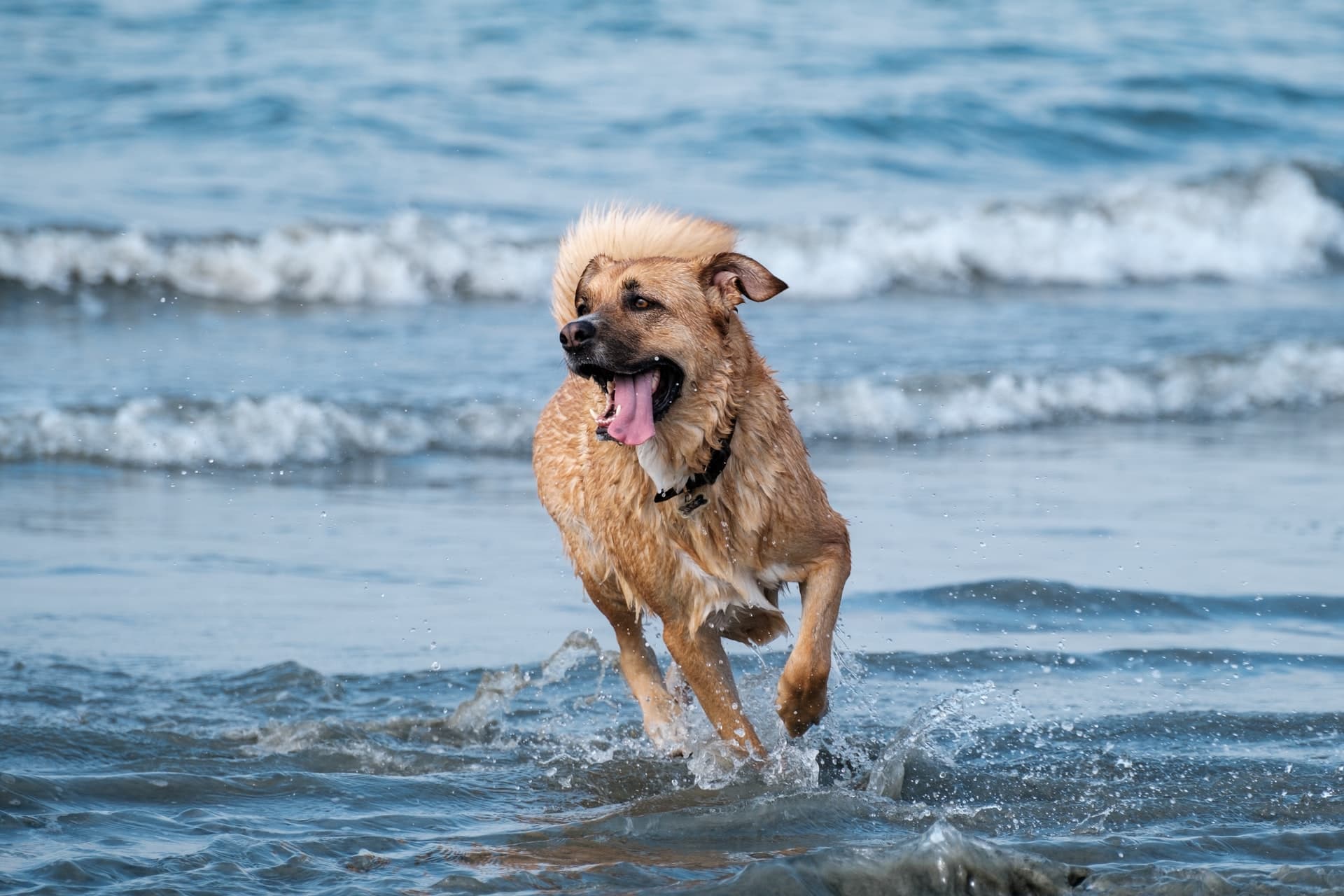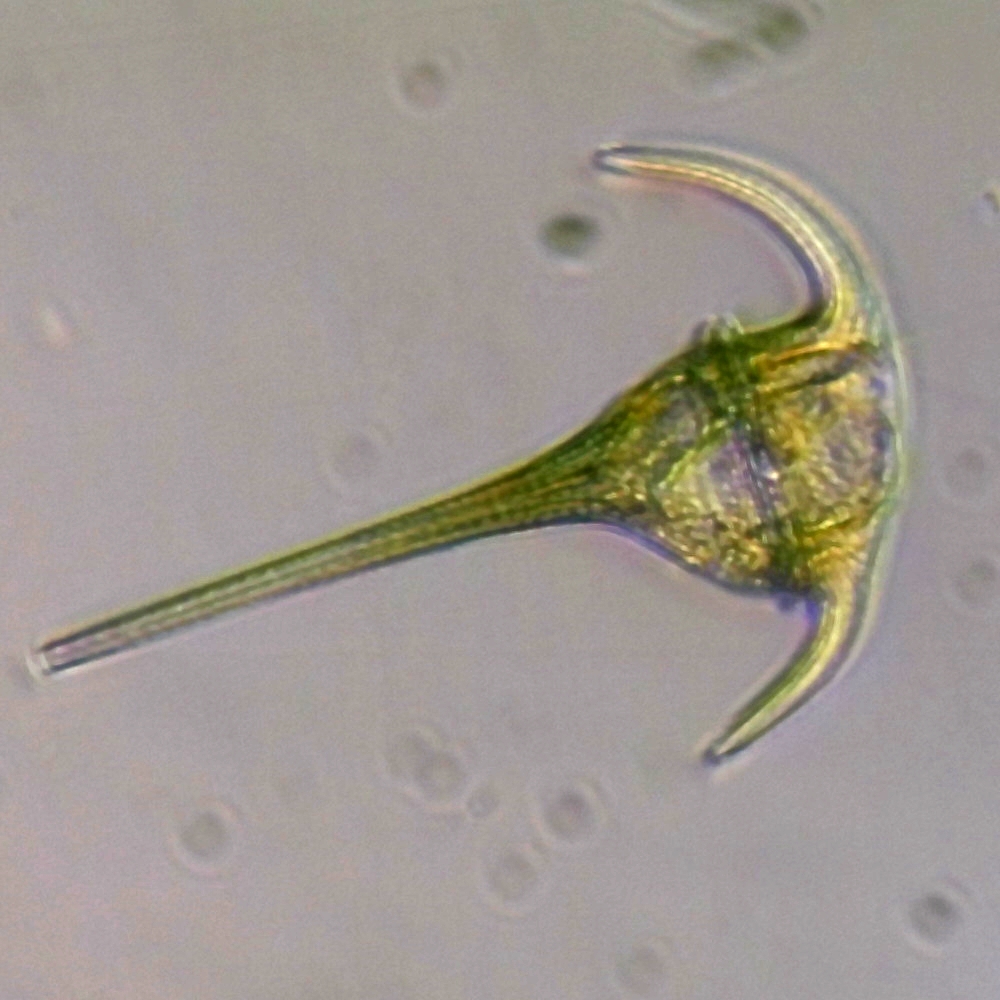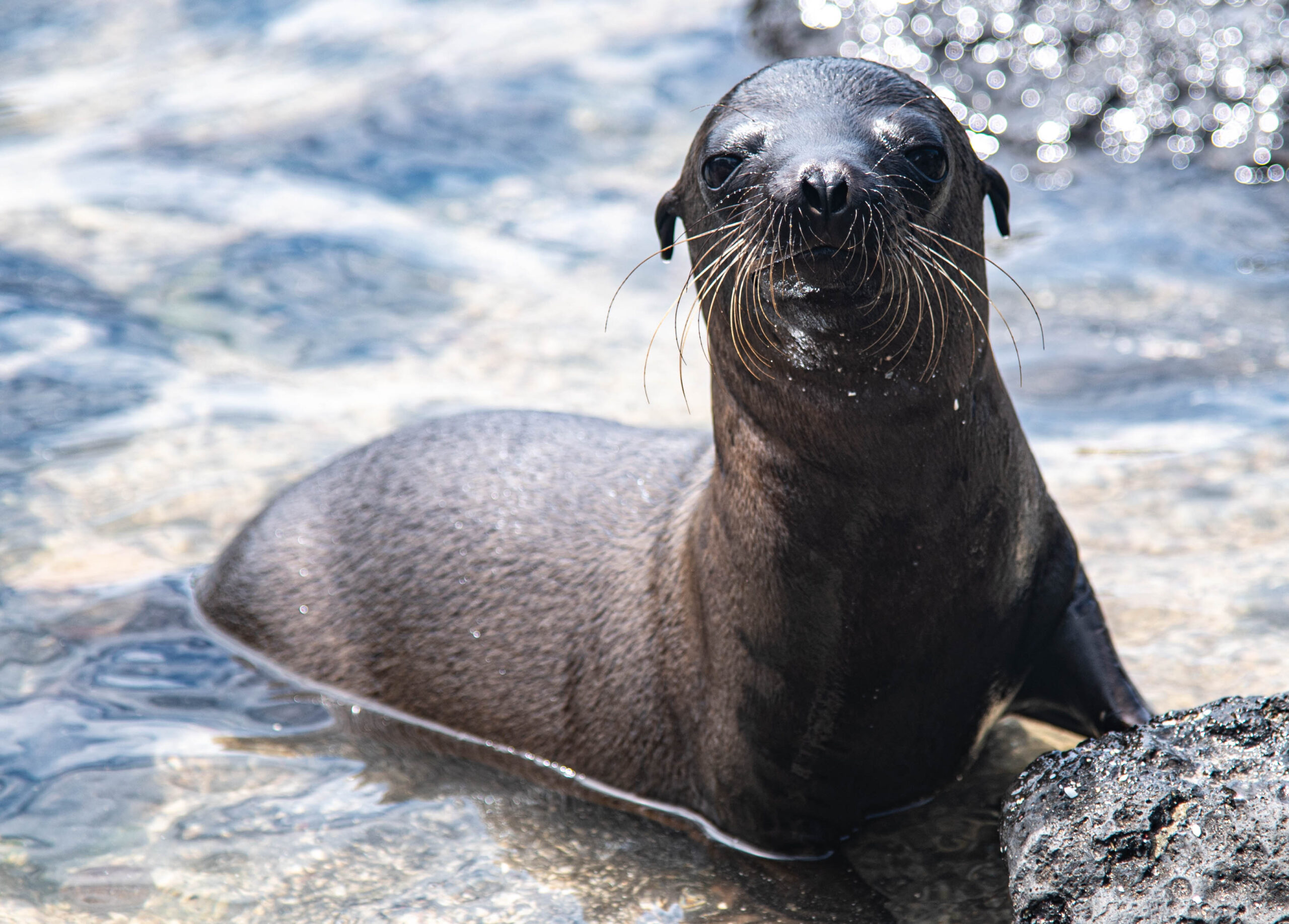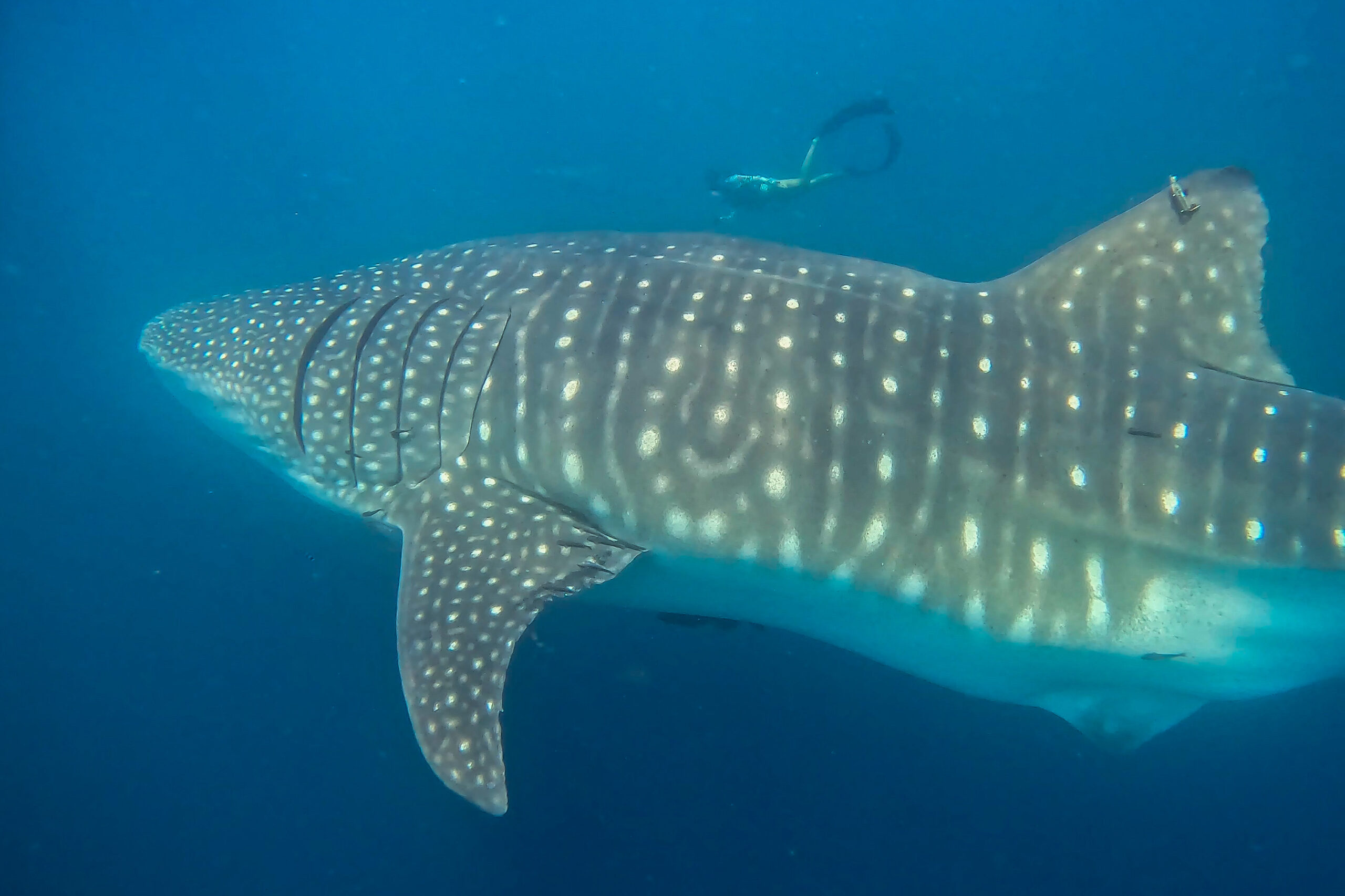
Nuevo hito en el estudio del tiburón ballena en Galápagos
El equipo del Proyecto del Tiburón Ballena de Galápagos, en colaboración con la Dirección del Parque Nacional Galápagos (DPNG) y el Galapagos Science Center de la Universidad San Francisco de Quito (GSC-USFQ), ha retornado recientemente de una expedición de 15 días al Arco de Darwin, en el lejano norte del archipiélago.
Durante la expedición, el equipo logró identificar 12 tiburones ballena distintos y marcar a 7 de ellos con dispositivos satelitales SPLASH, colocados con pinzas en la aleta.

